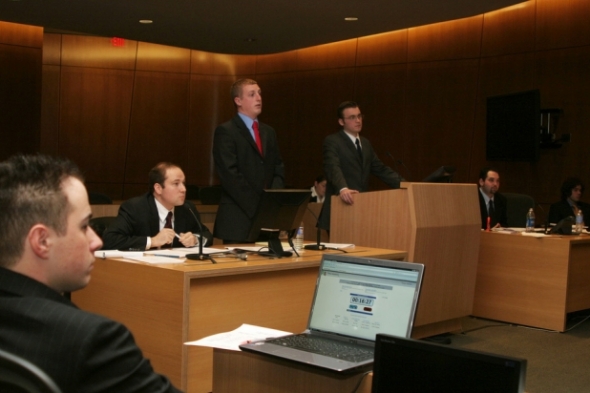The workers' compensation community watched anxiously for months as the U.S. District Court for the Central District of California considered a constitutional challenge to the lien activation fee -- an important component of the 2012 reforms in Senate Bill 863. In the case (Angelotti Chiropractic, et al. v. Christine Baker, et al.), Judge George Wu ruled on Nov. 12 that the fee is indeed unconstitutional based on the Equal Protection provisions of the U.S. Constitution. His reasoning was that there was no rational basis for exempting large institutional lien holders (health care plans, union trusts, etc.) from the activation fee and that all lien claimants should either be in or out when it comes to filing fees.
The injunction against enforcing the lien activation fee took effect on Nov. 19. In anticipation, the Division of Workers’ Compensation notified the community Nov. 15 that it would no longer be requiring the fee be paid for liens filed prior to Jan. 1, 2013.
It is important to note that there are two filing fees enacted in SB 863. The one that applies to liens filed prior to Jan. 1, 2013, is the lien activation fee and is the subject of the federal lawsuit. The other is the lien filing fee, which is not affected by this litigation. In addition, statutory and regulatory changes made in SB 863 and the regulations adopted by the Division of Workers’ Compensation eliminate liens for most service providers that are subject to a fee schedule for dates of service on and after Jan. 1, 2013.
That is not to say that the injunction against enforcement of the activation fee is inconsequential, for it most certainly is not. In the last two calendar quarters of 2012 alone, more than 800,000 liens were filed. Of those, almost two-thirds are in Los Angeles County. Most of these have not moved through the system, undoubtedly because some lien claimants were waiting to see whether the activation fee was going to be upheld. It is assumed that many of these liens were never going to be filed because of the activation fee. As such, many liens would have expired by operation of law on Jan. 1, 2014. That, too, is now part of the unknown that comes from the Court’s decision.
Obviously, the Department of Industrial Relations and claims administrators are not happy with this ruling. To a certain extent, neither are the plaintiffs in the case, who saw two of their three claims summarily dismissed by the court. Whether these issue now go up to the Ninth Circuit U.S. Court of Appeals remains to be seen. Plaintiffs, and indeed all lien claimants regardless of whether they were parties, have secured the relief they sought – enjoining the activation fee—but that could be put at risk if there is an appeal. Conversely, while the Department of Industrial Relations disagrees with the finding that the activation fee is unconstitutional, the fact that Judge Wu dismissed the claim that the activation fee constituting a “taking” of private property is a big win for proponents of SB 863 – for the taking argument has much broader implications than does the Equal Protection argument that Judge Wu found persuasive.
Because the Jan. 1, 2014, dismissal by operation of law date on old liens has been enjoined, it is not automatic that there will be a flood of activity on liens filed before Jan. 1, 2013, at the Appeals Board before year end. It is a fair observation, however, that liens many in the community thought would be extinguished by operation law won’t be. Whether those liens are going to be the subject of Appeals Board hearings and ultimately paid, however, remains uncertain. And uncertainty is a chronic symptom of our oft-ill but rarely cured workers’ compensation system.
And in case no one noticed, on Nov. 14 a new federal lawsuit was filed challenging both the lien activation fee and the lien filing fee. The plaintiff, who is seeking class action certification, is also demanding disgorgement of fees paid and reinstatement of any lien dismissed for failure to pay the appropriate fee. That case is Kancilia v. Brown, et al. and was filed in a different federal district court than Angelotti.
The transition from one set of rules to another on the heels of major legislative changes is never easy, regardless of the subject matter. In time, because of the other changes wrought by SB 863, the disruption caused by these suits will work its way through the system. Relief from the costs associated with the lien process will be delayed, and the income the fees provide to the Division of Workers’ Compensation will be less than anticipated, but ultimately the lien problem will be solved – just later than most had hoped.





